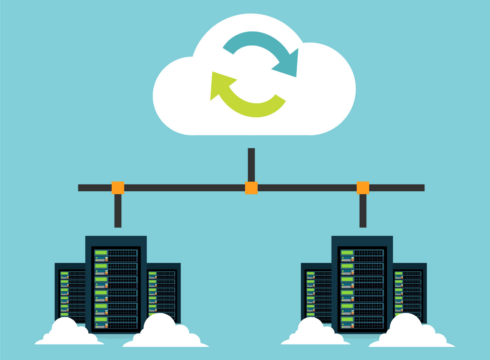Shared services often grapple with mountains of data associated with tasks which are crucial but are often repetitive and heavily reliant on data manipulation
According to Gartner, 70% of organisations are expected to integrate generative AI into their shared services by 2025
AI-driven analytics provide deeper insights into operations, enabling more informed decision-making
Inc42 Daily Brief
Stay Ahead With Daily News & Analysis on India’s Tech & Startup Economy
Shared services have long been a cornerstone of operational efficiency, centralising functions such as accounting, procurement, IT and HR among others to reduce redundancy and achieve economies of scale. However, the advent of generative AI is set to disrupt this established model, ushering in a new era of innovation and transformation.
Historically, shared services focussed on transactional tasks that were labour-intensive and prone to human error. Centralisation helped but did not fully eliminate inefficiencies. Generative AI, a subset of artificial intelligence that produces human-like outputs such as text and images, is changing this landscape.
According to Gartner, 70% of organisations are expected to integrate generative AI into their shared services by 2025, with a projected increase in efficiency of up to 40%.
Enhanced Automation And Cost Reduction
One of the primary ways generative AI is revolutionising shared services is through enhanced automation. Generative AI can take over routine tasks such as report generation, data entry and customer service interactions, executing them with greater speed and precision.
This reduces the need for manual intervention and allows staff to focus on higher-value activities. McKinsey & Company estimates that generative AI can reduce costs by 30% to 50% in shared services operations.
For instance, a leading global bank implemented generative AI to automate its financial reporting processes. The bank reduced the time required for report generation from several days to a few hours, resulting in a 40% reduction in operational costs and significantly improving data accuracy.
AI-Driven Analytics For Better Decision-Making
AI-driven analytics provide deeper insights into operations, enabling more informed decision-making. Generative AI can create complex data models that predict issues before they arise, allowing for proactive management.
According to Forrester Research, organisations using AI-driven analytics report a 20% improvement in decision-making accuracy.
For example, a multinational consumer goods company uses generative AI to analyse supply chain data, identifying potential disruptions and optimising inventory levels. This proactive approach has led to a 15% reduction in inventory costs and a 25% increase in supply chain efficiency.
Personalisation At Scale
Generative AI also enables personalisation at scale, customising services to meet the specific needs of different departments or users, enhancing the user experience and overall efficiency of the shared services model.
A Deloitte survey found that 56% of companies implementing generative AI in shared services reported higher customer satisfaction due to increased personalisation.
A large ecommerce platform, for example, leverages generative AI to personalise customer service interactions. By analysing customer data and interaction history, the AI provides tailored responses and solutions, resulting in a 30% increase in customer satisfaction scores and a 20% reduction in service resolution times.
Significant Cost Savings And Strategic Reinvestment
By automating tasks and improving operational efficiency, generative AI can lead to significant cost savings. These savings can be reinvested into strategic initiatives, driving further innovation and growth.
Accenture’s research indicates that generative AI can reduce operational costs by up to 30%, allowing for substantial reinvestment into core business areas.
A large healthcare provider automated its revenue cycle management using generative AI, which reduced operational costs by 35% and allowed the company to reinvest the savings into developing new patient care programmes.
Unlocking Insights From Data
Shared services often grapple with mountains of data associated with tasks like HR onboarding, finance processing, and IT support. These tasks, while crucial, are often repetitive and heavily reliant on data manipulation.
Generative AI represents a paradigm shift. By leveraging advanced algorithms and machine learning, generative AI can ingest, analyse, and automate these data-driven processes with unprecedented accuracy and speed.
For example, a large professional services company implemented generative AI to automate the processing of supplier invoices. This resulted in a 50% reduction in processing time and a 40% decrease in errors, significantly improving the overall efficiency of their accounts payable process.
The power of generative AI extends beyond structured data. Shared services often struggle with a vast amount of unstructured data—emails, customer feedback forms, and internal communication channels. Generative AI can analyse this unstructured data, identifying patterns and extracting key insights that would be impossible for humans to glean efficiently.
For instance, a telecommunications company uses generative AI to analyse customer service emails and identify common issues. This has allowed the company to address recurring problems more effectively, reducing customer complaints by 20% and improving overall service quality.
The Future Of Shared Services With Generative AI
Forward-thinking organisations are already leveraging generative AI to revolutionise their shared services. Generative AI Agents—intelligent software programs that perform tasks autonomously—are increasingly used to streamline various functions.
These agents manage everything from IT support requests to HR inquiries, providing rapid, accurate responses and freeing up human resources for more strategic work. A report by IDC highlights that enterprises using generative AI Agents have experienced a 25% reduction in response times and a 30% increase in overall productivity.
As generative AI continues to advance, its integration into shared services is not merely an option but a necessity for organisations aiming to thrive in an increasingly competitive landscape.
Companies that leverage this technology will not only achieve significant operational improvements but also unlock new avenues for growth and innovation, setting themselves apart as leaders in their respective industries.
According to PwC, AI adoption, including generative AI, could contribute up to $15.7 Tn to the global economy by 2030, underscoring its transformative potential. The future of shared services is undoubtedly intertwined with the evolution of generative AI, heralding a new era of efficiency and strategic advantage.
{{#name}}{{name}}{{/name}}{{^name}}-{{/name}}
{{#description}}{{description}}...{{/description}}{{^description}}-{{/description}}
Note: We at Inc42 take our ethics very seriously. More information about it can be found here.


